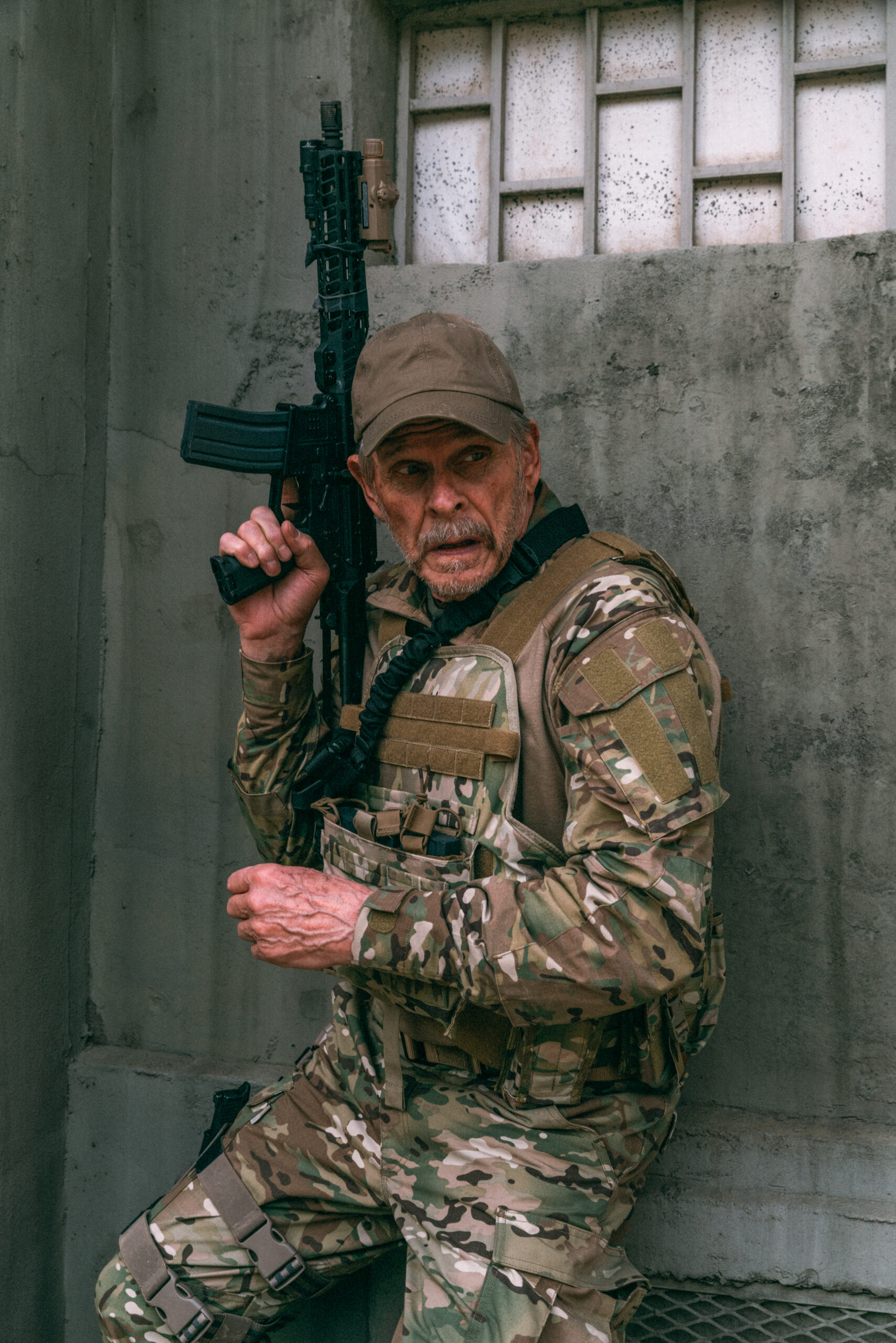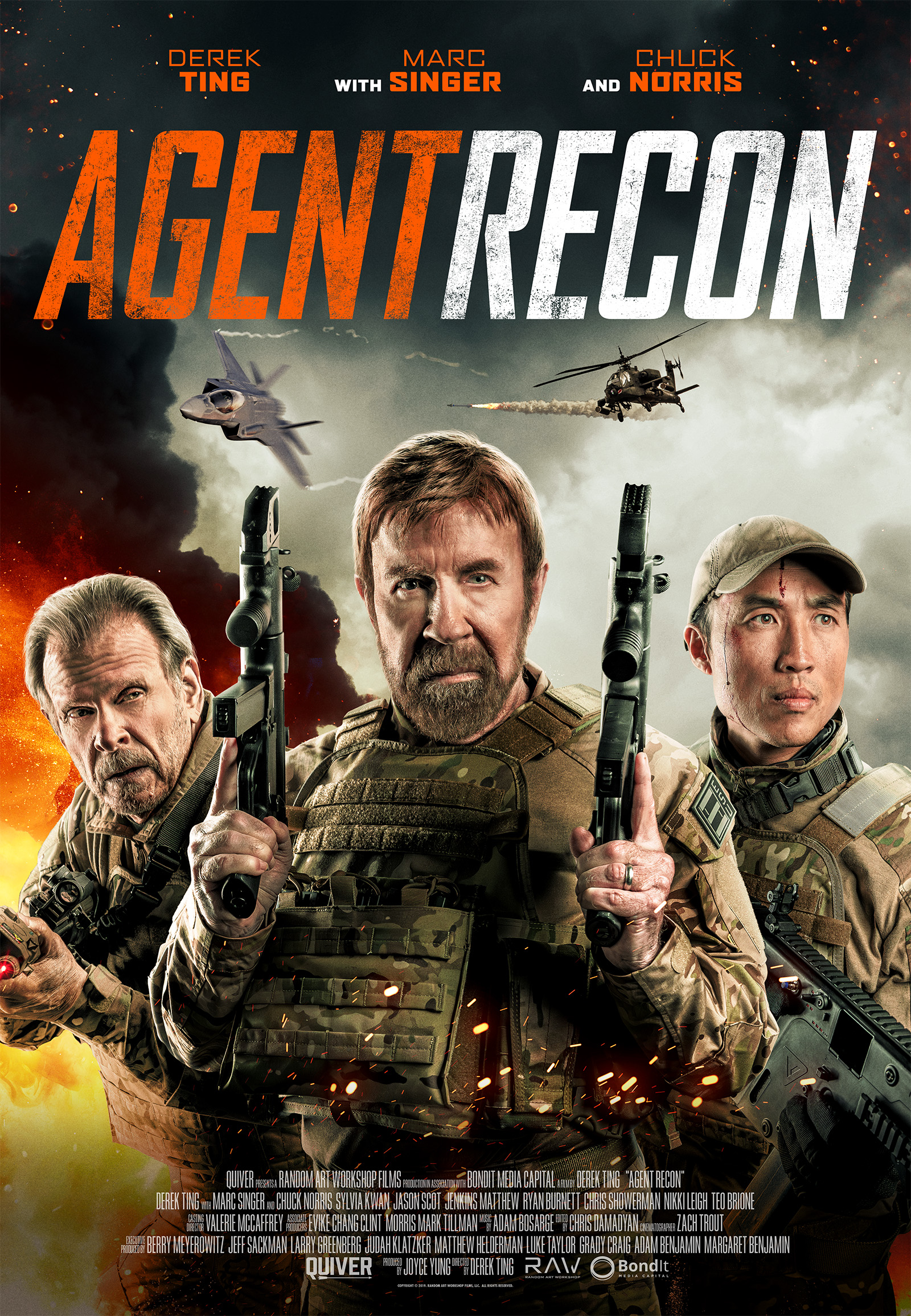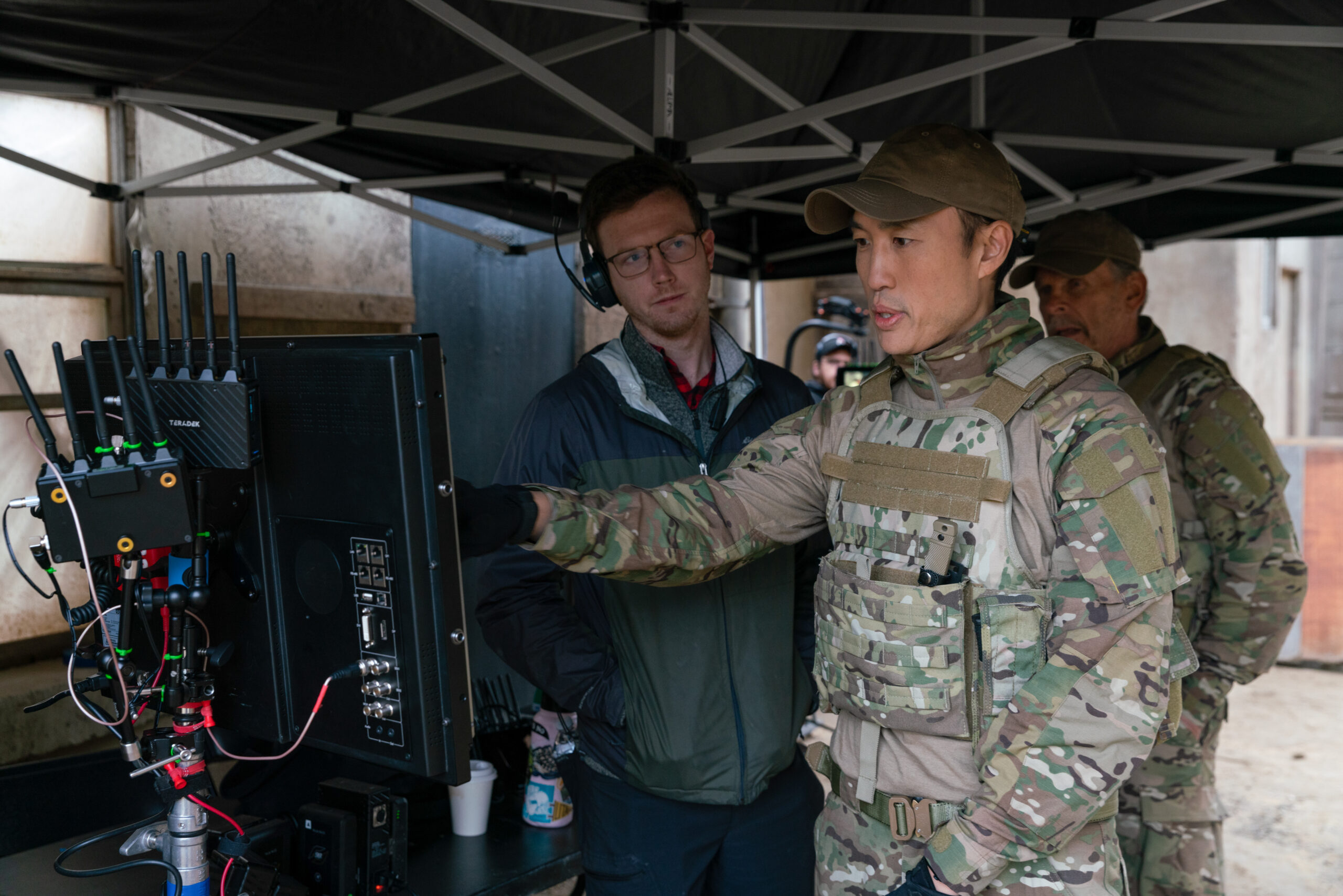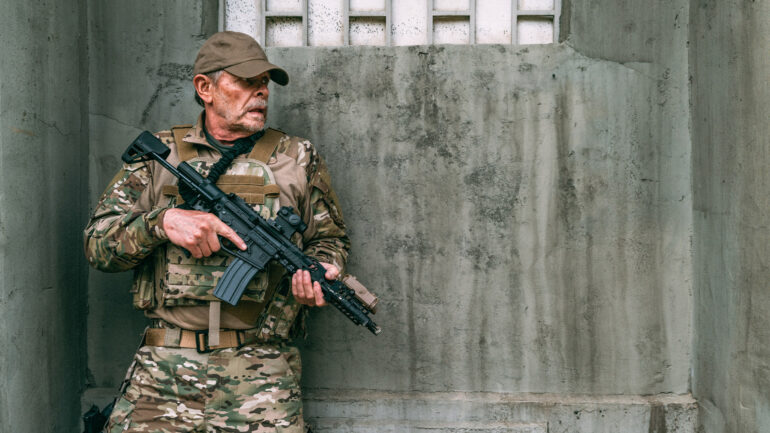If like me, you were lucky enough to grow up in the 80’s then you’ll be a fan of Marc Singer with roles in the classic television series V, The Beastmaster, Droid Gunner, Savate and many more. He stars alongside Chuck Norris and Derek Ting in the latest entry in the Agent franchise – Agent Recon.
Marc stopped by to chat with me about the film.
Today we’re going to be talking about your new film, Agent Recon. I was talking with Derek Ting about it the other day. What was it that appealed about the script for you that made you want to come on board?
I think that there’s two aspects of it. The first one I’m unashamed to say is, is it cinematically interesting? Does it look like it’s going to be a good movie? And it certainly checks the boxes in that regard. It’s got all the action. It’s got big scenery. It has romance and it has tension and the threat of disaster – all the things that you want to see in an action-adventure. But the main thing, once that’s all made apparent when you’re looking at a script, is the character that I’m being asked to involve myself with, is the character complex and interesting enough? And is there enough opportunity within the company to allow me and encourage me to do as much as I can do in the way of making a contribution? And also, in the way of exploring myself, because everything any actor does in front of the camera is self-revealing and the larger communication is the view of life. So, the idea that the role will bring out of me something joyous in having the opportunity to explain it as a character is something that I find very gripping. And certainly, in Agent Recon, there was all of that.
The character I play is a character who’s chosen a military career and is now on a recon and rescue mission to rescue his own daughter, who’s chosen the same way of life. There is, within the action-adventure aspect of it, the balancing of a father-daughter relationship, which is rocky and so there’s a lot of complexity to it, and I enjoy that.
When I was talking with Derek earlier, he was saying how he considers Colonel Green the actual main protagonist of the film, which I think I would agree with. Would you agree with that?
(laughs) I think he’s being generous. Colonel Green certainly provides the engine, his family dilemma within the larger context of a war or struggles between platoons of opposing soldiers. That’s the engine that drives the movie forward. So, in that sense, you could call him the protagonist. I think one of the aspects of a franchise, like the Agent franchise, is the occasional graceful stepping aside of the leading character to feature the story that animates the film. It was so, when I was The Beastmaster and in the series V, that the engine of the story that you were involved in was often supplied by a guest star or another role.
FYI, I grew up watching V, and it’s one of my all-time favourite shows. Same with The Beastmaster movies. Loved them!
Thank you! I appreciate it.

How was Derek Ting to work with as a director and how would you describe his style as a filmmaker?
I think nothing short of extraordinary, really. When you consider he’s the producer, writer, actor, director, and he’s the star of the thing as well.
He carries the entire weight of the production on his shoulders every day, and he did it with an amazing aplomb. There was never a display of anxiety, or shortness of temper, or sense of urgency and anxiety about whether the moment could be achieved. It was like a bunch of pals getting together and making a movie, only the pals were all top-drawer professionals.
We had extraordinarily good cinematography and a great crew, and the rest of the cast just sparkling. We had Chuck Norris on board to add that degree of celebrity and weight and experience. All of that, and Derek Ting, our director, handled it with just enormous calm and a lot of fun and great support.
He was an extraordinary man, I think, and perfect to play the lead, because that’s what a lead does. A lead leads.
You just mentioned working with Chuck Norris. How was that, and did you spend any time with him off set getting to know him at all?
Chuck and I had but the barest acquaintance in decades past in certain black-tie events that the Hollywood industry comes forth with occasionally, but we never had a chance to really get to know each other or to work with each other. I was as curious as anything to find out more about him and what the work experience would be like, and what I found was that it was this man who had enjoyed as much success as he has, who was just as enthusiastic about being on a set as anybody else would be expected to be, and that he was modest and welcoming and wished for the best for everybody. And the thing he did, I’ve said this before, is that he came on the set and did what the best do, which is he fell in love with everybody, and everybody fell in love with him. He’s a really great guy and was very, very, very good to work with, and I highly recommend it.
Yeah, he’s a legend for a reason. How did you collaborate with Derek during the making of the film? Was he open to improvisation and suggestions?
I think there’s always a degree of concern running in both directions between actors and directors when they first get together, especially if they haven’t had much communication beforehand. There’s a kind of feeling out period where you test the director’s experience, the director’s style of communicating with the performers, and the director at the same time is watching the performer to see if he can trust where the performer’s taste and where the performer is going with his ideas. And this happened very quickly between Derek and myself. As he gained confidence, and as my understanding of his style and his technique increased, we began to do that wonderful thing that catchers and pitchers do in professional baseball. We had an unspoken communication, and very seldom was there any need for him to say more or less or faster or slower, or for me to say one thing or another either. We both just understood exactly what was going to happen next and fell into line and accomplished the deed. And this, by the way, was the hallmark on the set all the way through, which again, this all comes from Derek, is that the crew just moved like clockwork. We just went right through, right through, right through, right through. And the days were challenging because we were out in the hills of California. I mean, herds of deer were wandering through the set, and we had rainy, cold, and muddy days, and we had blisteringly hot and searing days, and we had days in which the wind would chafe you, and early mornings and late nights, and a hell of a rainstorm at one time, one of the biggest in California histories. And yet we just plowed right on through, and it all became part of the film.
I actually remember seeing the deer in the film. You can see the deer up in the hill behind you.
Oh, yeah, that’s right!
Having worked in TV and films, do you have a preference for either medium? Do you think film gives you more chance to explore characters or TV?
I think in the past there may have been a time when television was regarded as much more highly restricted and much less imaginatively creative, but I think that writers like Rod Sterling kind of broke that door down. The early days of Playhouse 90 went a great way toward dissolving the artistic accomplishments of one over the other. These days there’s been such an expansion of the mechanics of filmmaking and such a relaxation of the rules of filmmaking that you can find quality work in either media and in either medium, and I mean, just to single out a moment that leaps into my mind, I think of Edie Falco in The Sopranos. Her work is staggering in that, and Patricia Heaton in Everybody Loves Raymond. These are extraordinary actresses doing extraordinary work, and actors and actresses like that abound across the board in every medium, so I don’t think one has a superiority over the other artistically.

Yeah, and these days it’s hard to even tell the difference as TV shows are so cinematic looking now too.
Yeah, I know. Very high.
Generally, these days what do you look for in a script for you to be interested in a project?
It’s hard to describe, but scripts come out of the blue. They come raining down out of the ceiling (laughs). I don’t know where they come from, but they’re everywhere, and they come to you in every form and fashion, and there’s no telling what’s going to catch your eye when or who’s going to bring it to your attention. So really, the entire Hollywood scene, and I use that as a generic term, the entire Hollywood scene, no matter where it occurs around the world, is, I think, a very fluid experience, and it’s hard to pin a label on certain aspects of how it blossoms in different areas.
What was the most rewarding part of working on this film for you?
The goes back to a question we addressed earlier, which is the turning of the page, another chapter, a reintroduction of myself to the audience in this more experienced, more mature iteration; the ability to demonstrate my capacities and where life’s experience has taken me. I think that’s probably the most important driving force, significant driving force, behind my work in this film, yeah.

How would you like the film to resonate with audiences?
Well, I don’t know. I guess I would hope that in whatever way, each individual experiences the film, that it would be fulfilling to them and that they would feel that it was worthy of the history of Hollywood and the true value of filmmaking. And I believe that we have accomplished that. And so, I stand by that and that would be, as it always is, I think, the best accomplishment of a film and speaks best for it.
Thank you so much for taking the time to chat with me tonight. It was great fun.
Hey, thank you very much. You bet.






